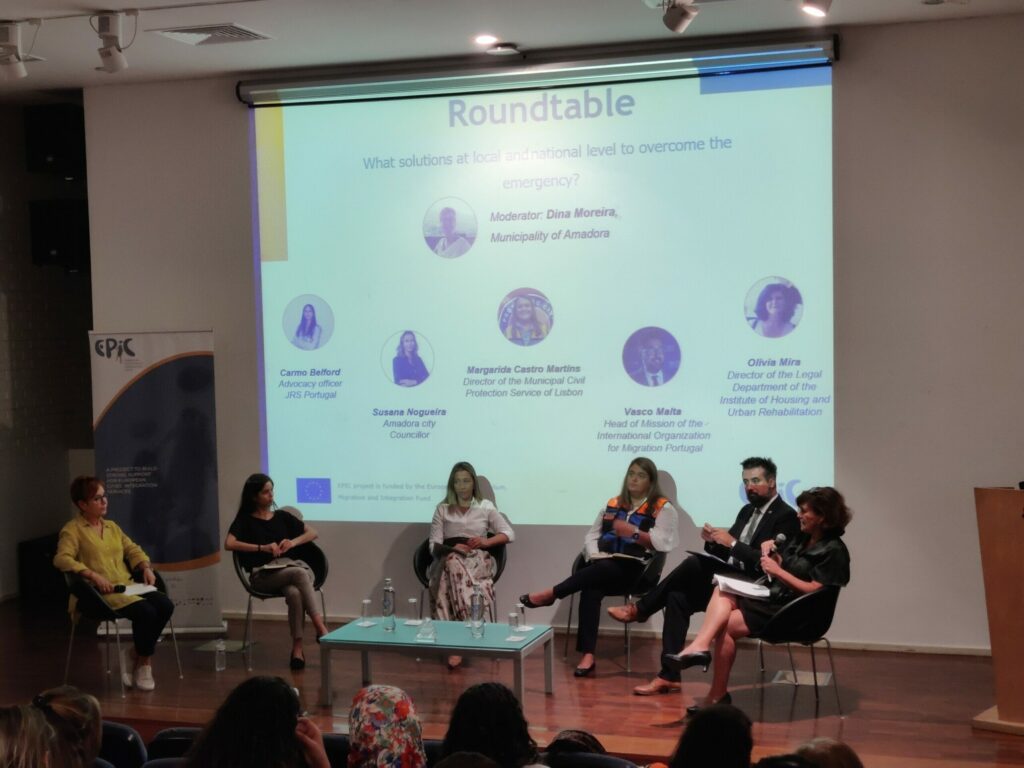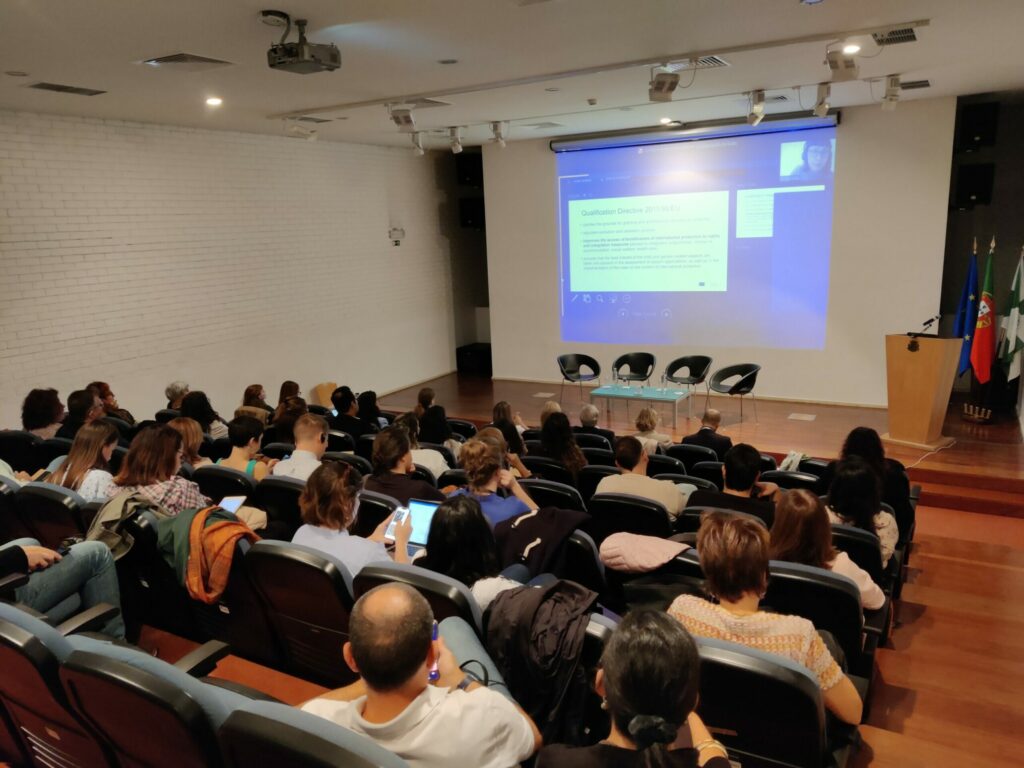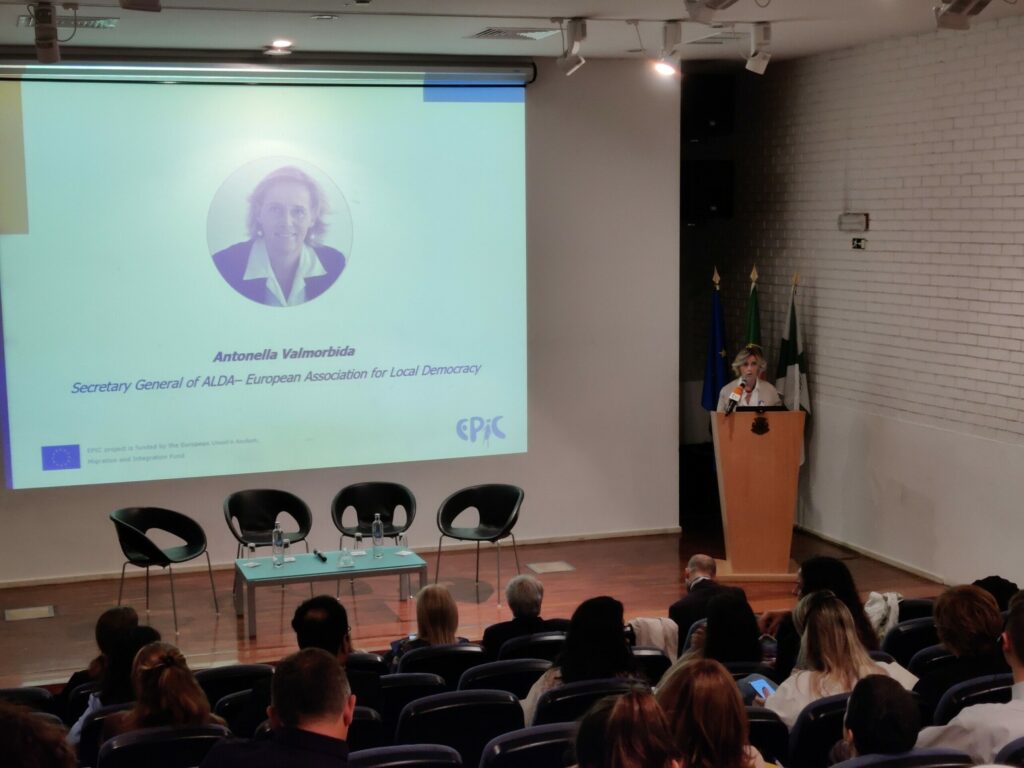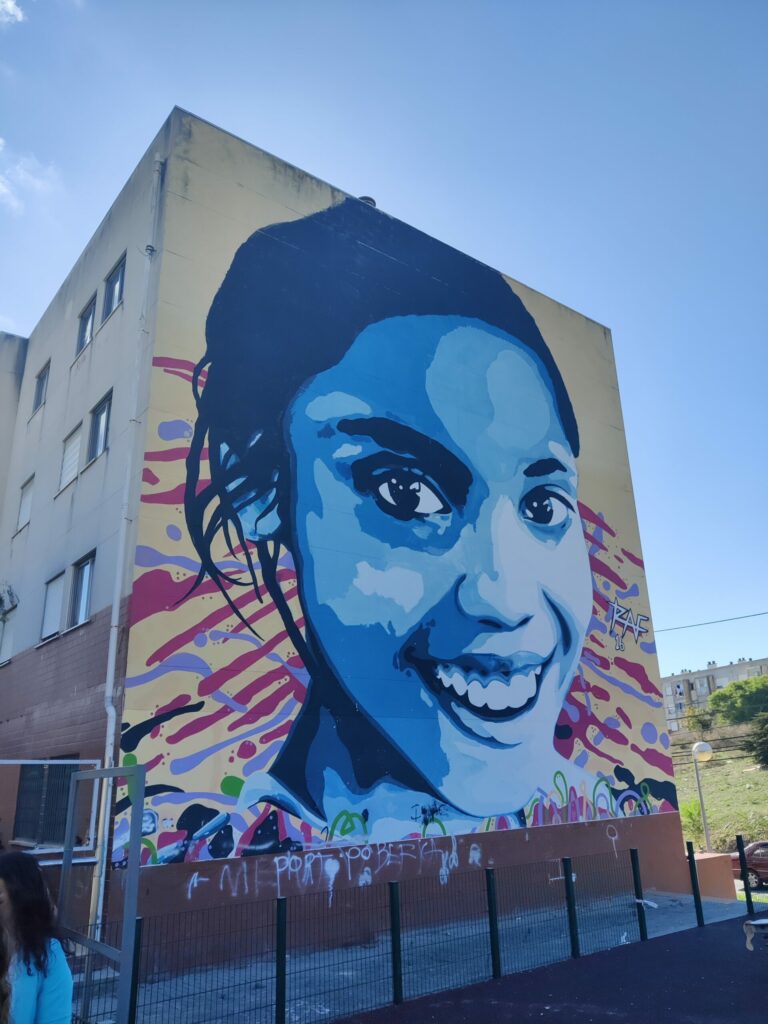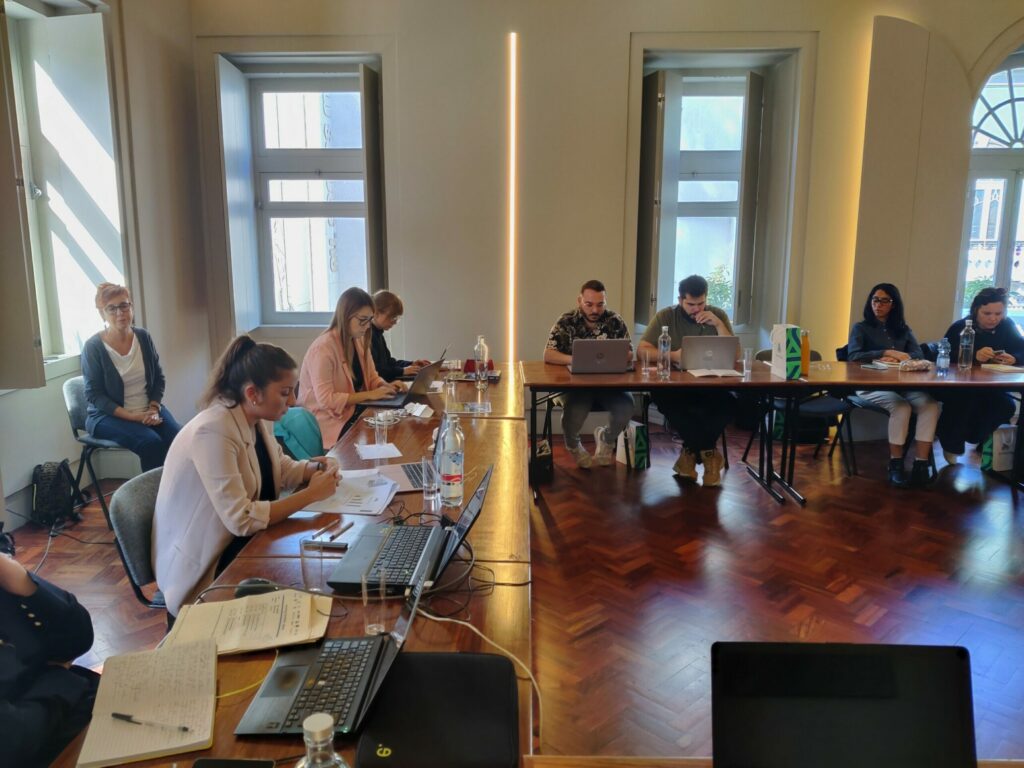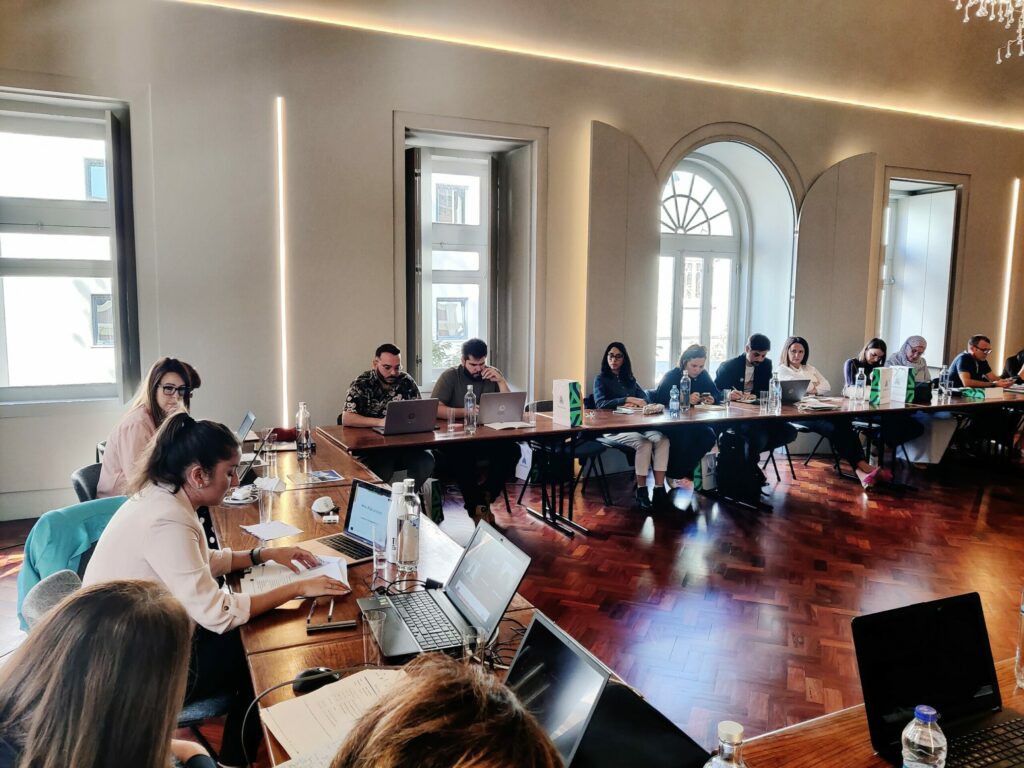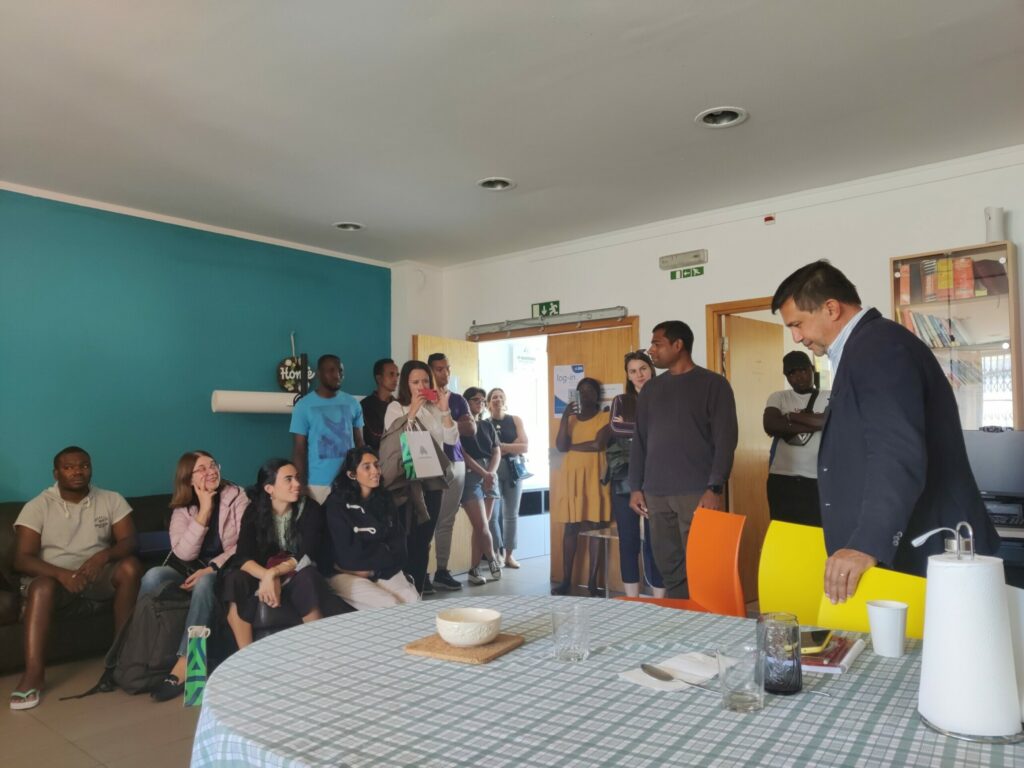Ideas, next steps, and the upcoming duties at the core of the EPIC project steering committee in Amadora (Portugal).
On Tuesday 27 September 2022, the Portuguese Municipality warmly welcomed the EPIC project partners, not only for the above-mentioned meeting, but also for field visits. The latter took place during the afternoon, and were targeted to illustrate two specific initiatives. Starting from “Project 12-15” which is addressing early school leaving. Specifically, this initiative is willing to decrease absenteeism among students aged between 11 and 16, thus fighting school dropout.
Similarly, partners had the opportunity to visit Pedro Arrupe Centre, directed by the Jesuits Refugee Service in Portugal, and aimed at easing migrants and homeless’ entrance into professional life. Partners were lucky enough to be able to dialogue and exchange impressions and ideas with those involved at the centre.
On the next day, Wednesday 28 September, the meeting evolved into the open event aimed at scrutinising how to develop a structural approach of reception and integration. Convicted as an international networking path (INP), it marked the occasion for partners and external stakeholders to discuss policy harmonisation, project integration and local-to-local cooperation.
Amadora hosted the international networking path to investigate how to develop a structural approach of reception and integration
Hence, the idea behind this INP was to contribute to provide a fruitful environment, allowing different stakeholders to reflect on European migrant issues and challenges with the possibility to take common positions and political statements addressed to the European Institutions.
Ms. Carla Tavares, Mayor of Amadora gave her opening speech, welcoming both guests and speakers while emphasising the municipality’s efforts and adopting mechanisms in terms of migrants’ structured integration.
Similarly, Ms. Antonella Valmorbida, ALDA Secretary General, provided an overview of the commitment of the Association within the field, after having summarised the initiatives undertaken within the project.
The meeting saw also the presence of Ms. Birgit Luus, Policy Officer DG HOME, European Commission and Ms. Jasmijn Slootjes, Migration Policy Institute Europe, who provided an overview on the legal aspects and the increasing role and recognition of cities as essential in creating resilient and ‘emergency-proof’ migrant integration systems; respectively.
As also expressed by many participants, listening to the testimonies of three people from Syria, Ukraine and Afghanistan symbolised one of the most intense moments of the international meeting.
In the afternoon, a roundtable discussion with several stakeholders took place. The aim was to exchange on how to improve the reception system and how to strengthen the social cohesion of the migrant’s community through action both at national and local levels.
Overall, the international networking path in Amadora was an opportunity to also further discuss and analyse the objective of the meeting, starting by the different experiences participants had on inclusion/integration policies and practices; or by discussing the different faces of a multicultural society.
